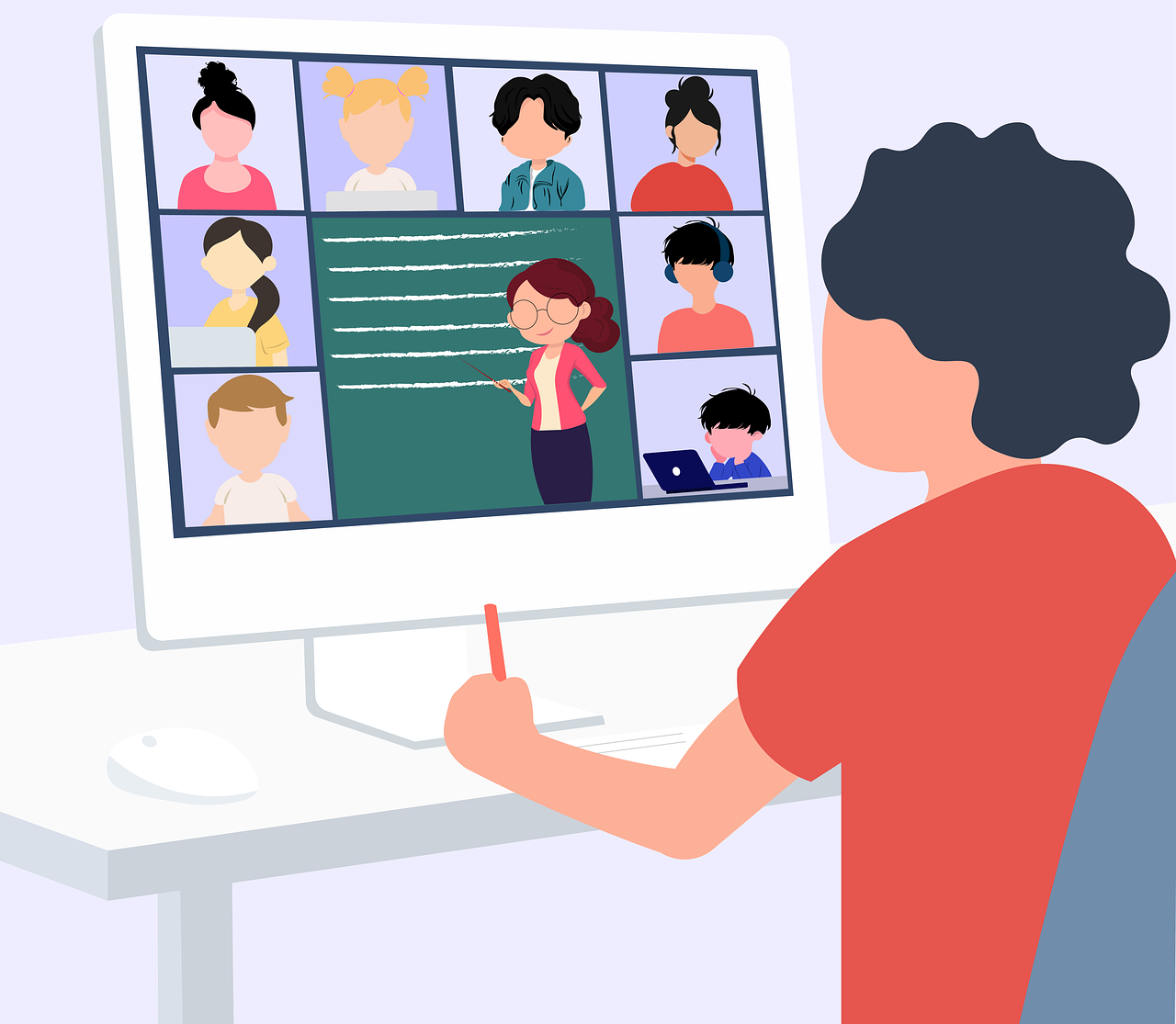By Elena Smith, Year 10
Online learning has been the subject of countless conversations after most of the world’s first experience with it in March 2020. Although online learning has been discussed and debated, it is important to highlight that, for the most part, online learning is usually looked at from a student’s perspective.
So this raises the question: What are teachers’ opinions on online classes, and how do they differ from students? To answer this question, the Express turned to Ecolint teachers, who were just as new to online learning as students were back in 2020.
We looked at some of the most asked questions towards students, and with that, put together some questions that covered the most important areas and topics of online teaching.
“What were some of the first thoughts and feelings you had concerning online learning in March 2020, when we first went into lockdown?”
Lockdown was a surprise to everyone, but what were teachers thinking when the Swiss Government announced we were all to stay at home?
“As head of the Chemistry department, we wanted to make sure that all our colleagues had the required skills to effectively teach classes” explained Mr. Sundqvist.
As online learning was a new concept to everyone, not just teachers, so it was crucial that he made sure his work colleagues knew how to deal with this crisis and how to manage with new tools, especially when it came to the ‘techy’ side of online teaching. Online learning meant working alongside Zoom, Google Meets and more, which took time to adjust to and get used to.
Jasmine Smith, a primary school language teacher said that “It was quite daunting at first as I feel none of us had a clear vision as to what effective teaching would look like online”. She also mentioned that one of her first reactions was wondering how online lessons were going to work with young children.
“Did you feel students were deprived of an adequate education, and if so please elaborate?”
It is not clear what students think of this themselves. Some believe that working more individually and independently helped them grow academically. It is equally important to mention, however, that many students maintain the idea that online learning stopped them from receiving a proper education, and working at home was distracting and a bad working environment.
This question has been asked several times to students and to parents, but why not just ask teachers themselves? We know what students think, but what about teachers?
“We all worked incredibly hard to keep the learning experience alive and well, which of course also included new ways to connect and keep a much-needed sense of community at a very difficult time for all,” said Jasmine.
Teachers were faced with an extremely difficult task, and although online lessons may not have worked for all students, it is clear that teachers worked extremely hard to ensure that Ecolint continued to give students a good education.
“How did online teaching affect your everyday life, did you feel you had more time to spare like most students or did online learning require more work time?”
Most students had a much lower workload during the pandemic, and working from home gave them more free time than ever. For teachers, however, it was quite the contrary.
Mr. Sundqvist stated that “Teachers spent a lot more time working because we had to get used to using lots of tools teachers had never used during their teaching career”.
Although students feel they had more time on their hands, teachers were spending most of their time trying to balance having fun and educational lessons all whilst being online.
Jasmine Smith said that “Undoubtedly there was a lot more work as the first few weeks consisted of a lot of trial and error”. She also mentioned remembering several sleepless nights of recording ‘loom’ videos and testing links in ‘seesaw’ for her activities planned for the next day.
For students, online learning was, on the whole, less stressful because there were fewer assignments and less pressure. For teachers, they had to find a balance between family life and work life, all whilst creating memorable and creative lesson plans for their students.
What were some of the most difficult aspects of online learning?
“Although the first few weeks were extremely busy and stressful, just as I was getting used to this we then switched to a hybrid model which, I felt, was very difficult” Jasmine Smith explains. Although the hybrid model of learning was a great relief for students, it made it extremely difficult for teachers to give lessons, as they would have to plan lessons for their class in school, whilst simultaneously planning a lesson for their class online.
Jasmine also comments: “what was difficult was having to depend on parents to take on an active role as young children could not work autonomously. It was difficult because I was fully aware that some parents were faced with an impossible task, having to do their own job and look after young children”.
Mr. Sundqvist also states: “As the pandemic went on a major issue was how to ensure engagement of students and give them formative feedback”.
Online learning was difficult to manage because it was easy for students to not show up to lessons, or not complete tasks. A major difficulty in online teaching was making sure students were contributing in class, and not disappearing.
Any positive points concerning school online?
Jasmine Smith gave a great example of a very positive outcome of online school, something that would not have been possible if it were not for the COVID-19 pandemic.
“Online experience enabled me to cater for one of my students who had to be absent from school for several months. With my new skills and confidence as well as really effective support from his mother he was able to join our class for part of the lesson every week, pairing up with different students to work on a task.”
Without online learning, tools like hybrid teaching, and knowing how to manage things like Google Meets, this student would have been deprived of a good education. Luckily, with the skills Jasmine had learnt, he was able to learn, and socialise with his peers.
“The highlight for me was having him present a research project about Madagascar using the whiteboard to project his presentation and having him on the iPad with the camera, speaking with students in class, as they asked him questions.”
Not only did online school ensure he got a good education, but it also gave him time to interact with his friends, something that is extremely important, especially with young children.
Finally, how do you feel your relationship with students (if at all) are different compared to online and in-person classes?
Mr. Sundqvist mentioned that teaching online gave him a chance to know students more individually, as online teaching was very individual, and less group work.
Jasmine notes that she got to know students who were usually very reserved in classes much better during this online class experience.
This interview gave the perspective of teachers, from a primary school teacher’s experience and a high school teacher’s experience. Although there are some similarities in teachers’ and students’ opinions, it is clear that in several areas both had very contrasting experiences.
It is also important to note that teachers worked extremely hard during online learning to provide lessons that respected the curriculum and were fun and interactive. As an Ecolint community, we are very thankful for their hard work during this difficult time, which proved to be an overall success.



